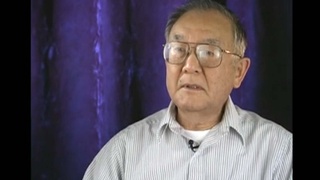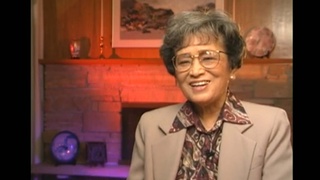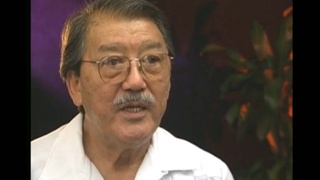Interviews
Becoming involved with the NCRR and redress
I gave a talk, my first talk on the Fair Play Committee. And at that time, several young people came up and said, “Hey, you know, we never heard of any resisters in camp.” Says, uh, “We’d like to hear about it, so would you come to the NCRR meeting and talk about it?” So, I went over there and talked to them and I was really amazed about how serious they were about this redress movement, you know. And, uh, seeing how, uh, dedicated they were, I felt like I would like to join them. And I joined them around 1983. And, uh, been with them ever since. I think I enjoyed that lobbying trip we made to Washington D.C. back in 1987, I think. Talked to congressmen.
Date: May 9, 2006
Location: California, US
Interviewer: Lisa Itagaki
Contributed by: Watase Media Arts Center, Japanese American National Museum







